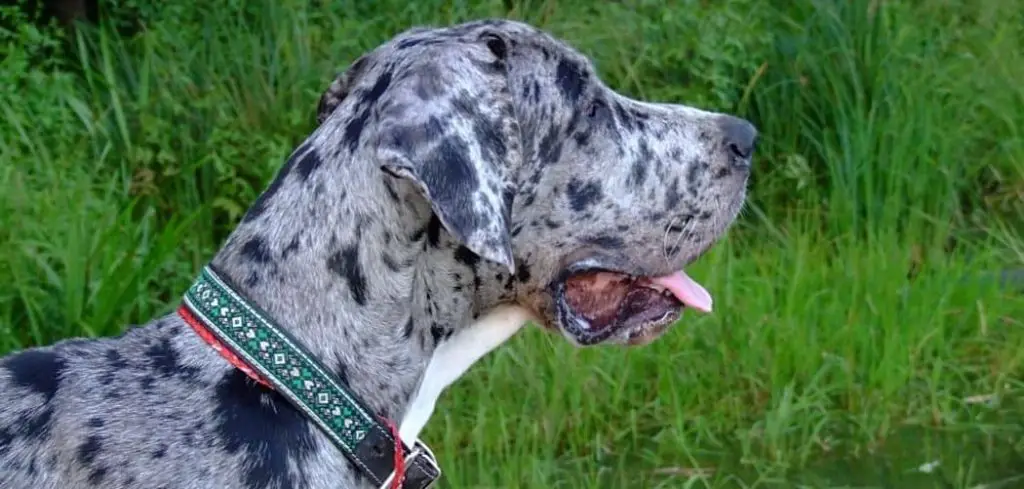Incontinence involving feces in older dogs is a distressing symptom that can affect both the dog and the household. When an older dog begins to lose control over bowel movements, it may indicate underlying health issues.
Recognizing the signs early and understanding potential causes can help improve your dog’s quality of life.
We outline the common causes of old dog incontinence poop, what you can do at home, and when to seek veterinary help.
Table of Contents
Old Dog Incontinence Poop — Why It Happens
Fecal incontinence in older dogs can result from a variety of medical, neurological, and musculoskeletal problems. Common causes include weakened sphincter muscles, spinal injuries, digestive disorders, and age-related nerve deterioration.
Pain, chronic illness, and certain medications may also contribute. Understanding the potential triggers is essential for effective management and ensuring your senior dog’s comfort.

Old Dog Incontinence Poop: Common Causes
Weak Anal Sphincter Muscles
With age, the muscles that control the anal sphincter can weaken, leading to unintentional stool leakage.
Owners may notice smearing, small accidents indoors, or difficulty controlling bowel movements during walks.
This condition is particularly common in senior dogs and can be managed with dietary adjustments, medications, and targeted exercises. Early intervention helps maintain dignity and comfort.
Read more: Old Dog Incontinence (Managing bladder control in seniors)
Spinal or Nerve Disorders
Spinal degeneration, herniated discs, or nerve damage can interfere with signals between the brain and bowel muscles.
Dogs with spinal or nerve issues may exhibit difficulty rising, dragging the hind legs, or sudden fecal accidents. Prompt veterinary assessment is critical, as untreated spinal problems can worsen mobility and lead to chronic incontinence.
Digestive or Gastrointestinal Disorders
Chronic diarrhea, colitis, or irritable bowel syndrome can make it difficult for older dogs to control bowel movements.
Symptoms include loose stools, frequent defecation, or straining.
Incontinence due to digestive issues can be painful and cause skin irritation if not addressed promptly. Diet modification and medical treatment are often required to manage these conditions.
Urinary Tract Infections or Bladder Issues
While urinary incontinence is more common, severe bladder or urinary tract infections can indirectly contribute to fecal accidents.
Pain or discomfort may lead dogs to rush to eliminate, sometimes resulting in fecal incontinence.
Owners may notice accidents accompanied by signs of urinary distress such as frequent urination or blood in the urine. Treating underlying infections helps reduce incontinence episodes.
Cognitive Dysfunction
Canine cognitive dysfunction in senior dogs can cause disorientation and loss of bowel control.
Dogs with cognitive decline may forget where or when to eliminate, leading to accidents in the home.
Additional signs include confusion, disrupted sleep, increased anxiety, and repetitive behaviors. Structured routines and veterinary support can help manage symptoms and improve daily life.
Chronic Pain or Arthritis
Pain in the hips, lower back, or hind limbs can interfere with normal bowel movements.
Dogs with arthritis or chronic musculoskeletal pain may struggle to assume proper posture for defecation, leading to accidents.
Observing signs like stiffness, limping, or reluctance to move helps identify pain as a contributing factor. Pain management and supportive care can improve both mobility and bowel control.
What to Do
Provide a safe, clean environment to prevent accidents from causing skin irritation or infections.
Use absorbent pads, waterproof bedding, or diapers specifically designed for dogs to manage indoor accidents.
Maintain a consistent feeding and bathroom schedule to help regulate bowel movements and minimize accidents.
Monitor your dog’s stool quality, frequency, and any accompanying symptoms to give your veterinarian accurate information.
Work closely with your veterinarian to address underlying causes, whether through medications, dietary changes, pain management, or behavioral strategies.
When to Call or Visit Your Vet
Seek veterinary attention if fecal incontinence is sudden, persistent, or accompanied by signs of pain, blood in stool, vomiting, or lethargy.
Any new neurological symptoms, difficulty walking, or sudden loss of mobility warrants immediate evaluation.
If your dog is experiencing frequent diarrhea, accidents paired with urinary issues, or signs of cognitive decline, prompt assessment is essential.
Early diagnosis and treatment can prevent further complications, improve comfort, and maintain your dog’s dignity.
Read more: Old Dog Peeing in House (Supporting aging dogs at home)
Key Takeaway
Fecal incontinence in older dogs can stem from weakened sphincter muscles, spinal or nerve disorders, gastrointestinal issues, cognitive decline, or chronic pain.
Careful observation, structured routines, and timely veterinary care are essential for managing the condition.
With attentive home care, environmental adjustments, and professional guidance, most senior dogs can maintain comfort, hygiene, and dignity, allowing them to enjoy their golden years safely.
